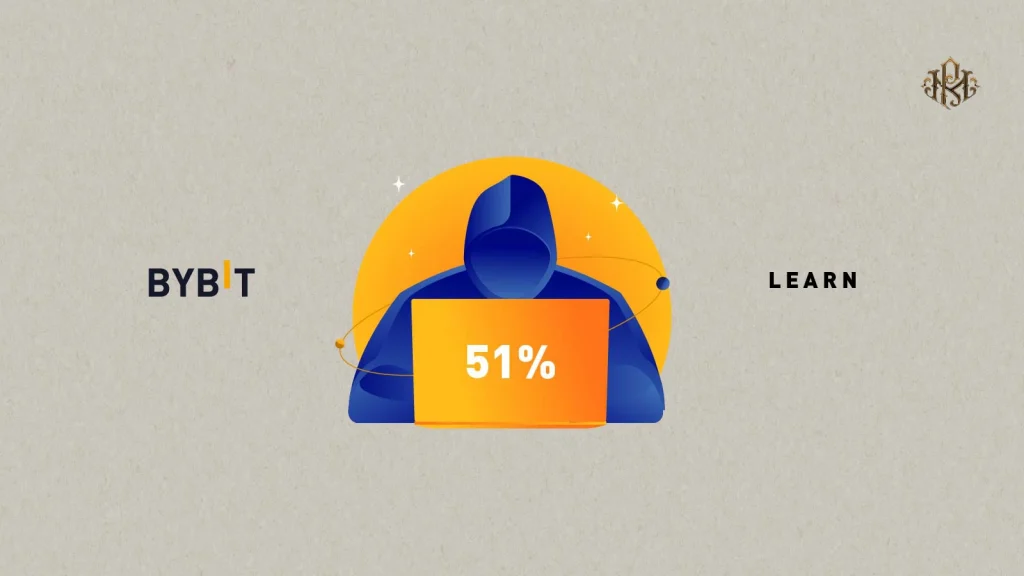
Close



As you know, the blockchain system is based on the equality of nodes and no node is superior to another.
In order for a transaction to be approved or rejected, at least 51% of the nodes must vote positively for that transaction. As a result, there will be no possibility of fraud or manipulation in this network.
But what will happen if the hacker owns more than half of the systems in that blockchain network? Is it possible to manipulate the blockchain system or even hack some blockchain transactions? Join us to talk about the 51% attack on digital currency networks.
First of all, we must have knowledge of the role of miners. In simple terms, mining can prove the authenticity of a transaction in a blockchain. For this purpose, network participants must confirm that transaction and confirm the answer to the block equation, which is the block hash.
Because the blockchain structure is decentralized and nodes work in different parts of the world without direct communication with each other, it is not possible to prove a fake transaction. Because no one has enough influence to control half of the network nodes.
But now imagine if a hacker has access to more than half of the network. Can it disrupt the work of blockchain nodes?
For example, it can repeat a spending transaction twice and thereby consume more of its digital currency. Or perhaps it could refuse to confirm transactions of its competitors, thereby disrupting the network.
For large blockchains like Bitcoin, whose nodes are distributed all over the world, this is almost impossible.
It is necessary to remind again that network nodes are all miners and hardware that check the authenticity of transactions in exchange for rewards.
Now let’s assume that a hacker can confirm a fake transaction in Bitcoin; To confirm the next transaction, it faces a fundamental problem because the proof information of the previous transaction is available in the next density, and in the same way, the next blocks must be manipulated. So manipulating large blockchain networks, such as Bitcoin or Ethereum, is practically an impossible process. But now, if we leave Bitcoin and Ethereum aside, it seems easier to hack and manipulate smaller tokens, because these digital currencies have less hash rate and nodes, and they can be penetrated by controlling 51% of the nodes.
For example, suppose a new token named XXX has only 20 miners, in this case you can change the decision of the blockchain by having 11 miners in this network!
First of all, due to the high cost of such attacks, it is beyond the power of personal hackers, and governments or large commercial organizations are probably behind these attacks. Many believe that companies such as the makers of influential digital currency mining devices that have a mining network can easily influence the transactions in the entire blockchain.

For this reason, the Monero network abandoned mining from its network and used the proof-of-stake protocol to prevent mining device manufacturers from infiltrating its network.
Ever since Bitcoin and other digital currencies became popular, people’s trust in traditional banking methods has decreased. Due to the lack of focus of new networks on the blockchain platform, people’s trust and interest in digital currencies increased. Who would like an economic or security institution to have the statistics of his total assets?
According to the digital currency site, in May 2018, one or a group of actors maliciously attacked the Bitcoin Gold network by 51%. At that time, Bitcoin Gold was the 26th best digital currency, and the attackers were able to take over a huge part of the network’s hash rate for a few days, and by returning and re-spending some coins, the number of Bitcoin Gold worth 18 million Get the dollar.
These attacks can be carried out with non-financial and political motives with the intention of destroying the network or changing the board of directors of a company.
So far, these attacks have been reported on Verge, Monacoin, Coin Gold and ZanKash digital currency.
In the end, we must remind you that if you work with altcoins that are listed in small exchanges, you should always pay attention to this big risk, but big networks like Bitcoin or Ethereum are exempt from this risk.